SPECIAL POST: The End of a Pontificate from Hades
Twelve years of autocracy, instability, confusion, and error
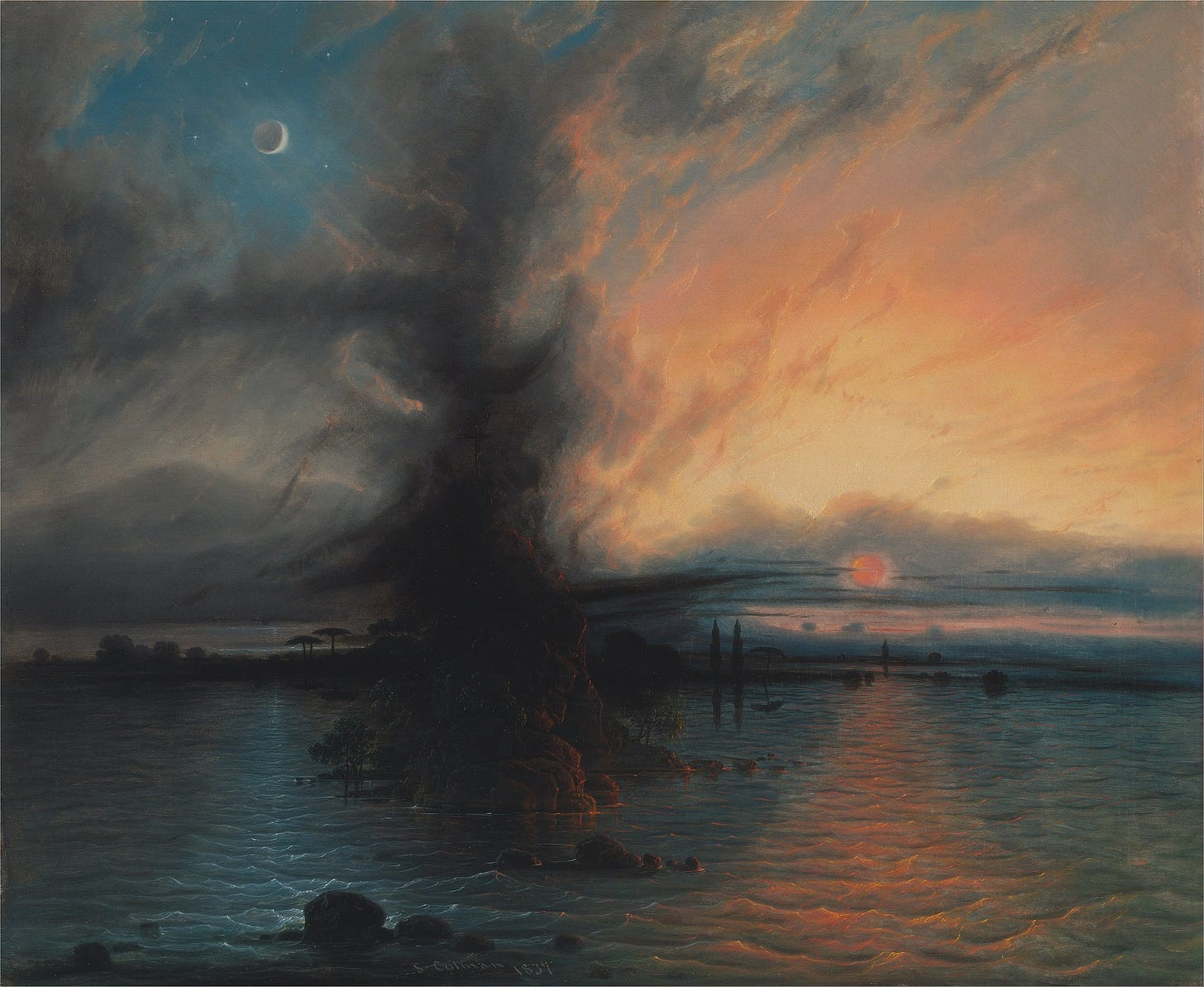
On Easter Monday, Pope Francis went before the fearful judgment seat of Christ. There is no need to sugar-coat his departure with pious platitudes, as the mainstream ‘c’atholic media will be doing ad nauseam (“a man with a shepherd’s heart for the poor,” etc.). This kind of autocanonization is familiar to us from six decades of Novus Ordo funerals, which have, at least if their actors can be believed, doubled or quadrupled the ranks of the saints.
I have been praying for years that God would deliver us from the scourge of this pontificate, and understood that if He willed for it to continue, it must have been for our testing and purification, our strengthening in virtue, and especially our growth in awareness of the stark contrast between raw power and genuine authority, between the reign of novelty and the rights of tradition. Now that Francis is gone, it feels, quite honestly, as if an enormous burden has been lifted from the Church (and, indeed, from the world).
All the same, it is never amiss to pray for the repose of someone’s soul, no matter how much evil he has done. As the Church teaches, a man’s merits and demerits are known with certainty to God alone. If Francis died with a penitent heart, prompted by a secret grace of God, he may well be saved — but he may be consigned to the fires of Purgatory for thousands of years, the poorest of the poor souls. Just as we would want to be prayed for after we die, let us do the same for his soul. This is why I prayed on the morning of his death and will continue to pray: Requiem aeternam dona ei, Domine: et lux perpetua luceat ei. Requiescat in pace.
No prayer is wasted. If it so happens that our prayers cannot benefit Francis (only God knows), they will still benefit the Mystical Body as an act of charity.
Let us also begin to pray earnestly for the upcoming conclave, which has every reason to be the most storm-tossed in centuries, as radically opposed visions of Catholicism vie for the cardinals’ votes. We do not know what is ahead, but we know that the Lord is risen and remains with us always. Whether the chair of Peter is empty or occupied, Christ is the everlasting Head of the Church, and her only Head in heaven where we long to join Him. Tu nobis, victor Rex, miserere.
If my opinion seems too harsh or critical for some people’s tastes, try to understand it as a corrective to the virtual canonization that the departed pope is already receiving at the hands of countless pundits. Serious caution is in order: we don’t want to throw the baby out with the bathwater (hence my call for prayer), but we also don’t want, as it were, to canonize the baby. On the contrary, it is not a form of charity to pretend that the past twelve years have been anything other than a disaster, indeed a nightmare, for the Church, one largely fomented by this unfortunate Argentinian. I pray God will have mercy on his soul, but I will not lie about what he did here below.
The ABCs of the papal office
Too many Catholics, be they high-ranking churchmen or laity, seem to have forgotten fundamental truths. The past twelve years in particular have been a time of accelerating attempts to subvert Catholic teaching and memory-hole Catholic tradition.
Do you remember papal cheerleader Fr. Thomas Rosica saying back in 2018 that, with Francis, the Church is now “openly ruled by an individual rather than by the authority of Scripture alone or even its own dictates of tradition plus Scripture,” and that the pope “breaks Catholic traditions whenever he wants” because he is “free from disordered attachments”?
But this is not, and cannot be, the pope’s role.
St. Peter was made the first pope, the “rock,” on the basis of his rock-solid confession of faith: “You are the Christ, the Son of the Living God.”
This confession means:
Christ is God, who is alive and gives all life.
Christianity is the one and only true religion.
There is no salvation outside of Christ.
There is no salvation outside of His Body, the Church.
When and to the extent that a pope believes and preaches this Lord, this faith, this truth, he is Christ’s Vicar, acting on His behalf. To the extent that a pope deviates from this Petrine confession, he is not a rock but a “satan” (Hebrew for adversary or opponent). For it was with exactly that harsh word that Our Lord, shortly after having exalted Peter, rebuked him “for thinking the thoughts of men and not of God.”
The bestowal of the papal keys is not like a free entrance pass where, once you’re “in,” you get to do and say whatever you like. The keys are not an arbitrary power to bind and loose ad libitum, for God is not a God of confusion or disorder, but a God of peace (see 1 Cor 14:33). Jesus Christ did not say “I am an option, an opinion, and a pick-me-up,” but “I am the Way, the Truth, and the Life.” Rather, the keys represent an office, an obligation — even a cross on which to be conformed to Christ the Head. Yet St. Peter was crucified upside-down to show that he had learned not to vie with His master but to accept His primacy and remain subordinate to Him.
The highest service one can render to the pope, to any pope, is to enable him to serve the servants of God, without abusing them by his abuse of authority. The highest obedience to the pope is to offer unconditional obedience to the divine authority that shines through him as the basis and purpose of his power. The highest fidelity to the papacy is to remain faithful to the Lord who instituted it, the Gospel for which it exists, the doctrine and liturgy entrusted to it, the laws that guarantee its justice.
Nothing could be further from true veneration for the Vicar of Christ than adulation of his individual person; nothing could be more harmful to his holy discharge of office than mindless subservience without the light of faith, the power of reason, the virtue of discretion, the voice of conscience, and the love of tradition.
A steady commentary
There is no need for me to write here a full account of why I believe Pope Francis’s pontificate was one of the most disastrous in the history of the Church. Those who would like to understand why traditionalists (and not only they) view it this way may find the following posts helpful.
Why I Signed the Statement Calling for Francis’s Resignation or Deposition
As some of you are no doubt already aware, a substantial statement on the crimes and heresies of Pope Francis was published at Rorate Caeli on May 2, the feast of St. Athanasius. It is the most comprehensive overview to date of the many criminals he has protected or promoted, as well as the theological errors he has espoused during his pontificate. The statement culminates in a call for his resignation or, barring that, his deposition by cardinals and bishops. I am one of the seventeen signatories of this statement.
Pius X to Francis: From Modernism Expelled to Modernism Enthroned (Part 3: Conclusion)
In Part 1, I looked at the origins of Modernism and formulated a definition, with the help of Cardinal Mercier. In Part 2, I traced its fundamental problem back to a false philosophy that undermines supernatural faith in a definite divine revelation and discussed how the Oath Against Modernism was dismantled by a pope, Paul VI, who seemed suspiciously e…
Popes Who Fail to Rule for the Common Good
Last week, we dwelt on the fundamental notion of the common good and saw how that good establishes authority and “norms” obedience. Today, I will apply this analysis to the question of how papal authority rel…
Those who are interested in a deeper exploration could read my two-volume work on the papacy, published by Arouca Press and also available at the website of Os Justi Press:
All this to say, the traditionalist critique of Bergoglio’s papacy is not a matter of superficial impressions or emotional tizzies but of careful rational examination of his life, acts, and words, measured against the norms of Divine Revelation, the monuments and witnesses of Tradition, and the perennial Magisterium of the Church. We may be wrong about this or that particular issue — no one will be right in every single judgment — but we are certainly not wrong to see a massive problem that must be confronted and dealt with, now of course by one of Francis’s successors.
Reactions from around the Catholic world
Not surprisingly, the death of Francis has unleashed a veritable avalanche of commentary. The angle taken by, or the omissions in, the commentary can themselves be quite telling.
Before going into particulars, I’d like to address a potential objection: Why are we talking about the pope’s legacy, and even criticizing it, when respect for the dead should dictate a period of silence?
Eric Sammons rightly explains:
A social convention dictates that we not speak ill of the dead. The deceased person can’t defend himself, and we are liable to hurt the feelings of his mourning loved ones. I think we can all agree that there are times when this social convention is put aside; one of those times is when the person in question was a well-known figure who had taken on the mantle of a great responsibility and wielded power that had a profound impact on the world.
Moreover, I would say the very quick outpouring of lengthy articles on Francis does not reflect some kind of pervasive societal disrespect for the dead, but is actually pretty easy to understand as a reflection of the lengthy twilight of this pontificate. This pope has been at death’s door multiple times in recent years. (Just recall how often on social media you’ve seen discussions about, and even books and websites on, the “papabile” cardinals.) Moreover, just a few weeks ago, he was in the hospital for 38 days, hanging on by a slender thread. Even his doctors expected him not to leave the hospital alive. Surely, at any of these moments, but especially during the recent hospitalization, authors had already drafted their “post-mortem” essays. And when the pope died, they were ready to publish. In a sense, we have been stalled for years in the slow decay of this papacy. Hence, I do not blame anyone for publishing their work right after his death; they've been waiting a long time.
Crisis Magazine
As is his wont, Eric Sammons has written a perfect article (it’s the same one I’ve already quoted above). He states his position without beating around the bush:
It would be not just dishonest but silly to obfuscate the sad reality: Francis was a terrible pope. Examples of the problematic nature of his pontificate abound, from his offhand comments, to his choice of close advisors, to his official acts. It would be impossible to list them all, but a small sampling should suffice to demonstrate the failings of his reign.
If you want to link or send only a single post to anyone who is already busy “canonizing” Francis, this would be the one. If I started quoting it here, I’d have to quote the whole thing, every line.
Eurosiberia
Fellow Substack writer Constantin von Hoffmeister, on the other hand, wins the award for the most piercing rhetoric, in “Pope Francis and the Woke Church of Collapse.” His evaluation of the last twelve years is caustic:
He was supposed to be the Rock. Peter’s successor. What we got was a slippage, a sigh, a soft decomposition dressed in white. The Vatican ceased to be fortress and became refugee camp, gates swinging wide for every stranger, every non-believer, every voice demanding entry with protest and self-righteous noise. Pope Francis spoke in hashtags and soundbites, apologizing for the sins of the West to those who burned her cathedrals. Sin dissolved into suffering. Order collapsed into empathy. The gospel of Christ transformed into an HR manual for the global South, distributed like pamphlets at a Davos lunch. Pope Francis kneeled before the camera. He cried for the “undocumented” while the unborn were forgotten....
There were no nations anymore, just “neighbors” stretched across deserts and oceans like a prayer gone feral. Sovereignty? A heresy. Identity? An inconvenience. War was sin, hierarchy was sin, capitalism was sin — but the dilution of the sacred? That was mercy. Pope Francis mumbled unity and erased the name of every people who had once knelt before crosses carved by their ancestors. He called it fraternity but it smelled like surrender.
Thomas of Celano
A writer for UnHerd by the pen name of Thomas of Celano assesses the pontificate as follows:
Jorge Mario Bergoglio was unique — in his talent for manipulating world opinion; in his obscure and conspiracy-laden backstory; and in his extraordinary skill at destruction, sometimes creative, often not….
Deep fissures were revealed [by Amoris Laetitia] in the seemingly monolithic Church, challenging the teaching that doctrine develops, but does not change, for the new teaching contradicted that of John Paul II. Was theology, as had long been accepted, a precise discipline? Or was it something more subjective, more ambiguous?
[In spite of synods on synodality,] the Pope issued numerous decrees establishing his authority more firmly than ever. More than any of his predecessors, Francis was an activist, ruling on all sorts of minor matters and interfering in various religious orders and institutions, from contemplative nuns to the Knights of Malta, whose grandmaster was unceremoniously sacked. Bishops and cardinals suffered the same fate, driven to the edge of the Church by the man who claimed to care for the margins….
When it came to personnel, the Bergoglio papacy showed its least attractive and most damaging side. Favouritism, and its opposite, were much in evidence. Certain clerics, who should have been fired for the most obvious faults, particularly with regard to child abuse and sexual immorality, were protected — even against the very people the Pope had commissioned to clean up the Church’s act.
I especially appreciate Thomas of Celano’s conclusion, which is more or less the conclusion to Sammons’s article as well:
His reign was a time of great confusion for believing Catholics, though those outside the Church continued to applaud the way he reached out to the marginalised, while handily ignoring his constant baiting of traditional Catholics. In the end, though, little substantive was achieved. The Vatican finances remain a mess, its income falling steadily over his papacy. The Holy See has still not shown clear leadership around sexual abuse, even if this has started in the lower rungs of the Church. Ordinary clergy are demoralised and bewildered, and the numbers coming forward to be ordained have declined dramatically. As for changing doctrine, or even changing practice, little has happened. Perhaps there is no new model Catholicism in the offing, for the simple reason that none is possible. There is only the Catholicism of the past two millennia. Francis apparently raged against his critics in private, and many of those same critics died before him. Yet the Church itself survives him, just as it has his predecessors.
Hélène de Lauzun
This staff writer for the European Conservative offers a succinct account, comparable to Thomas of Celano’s. One particular sentence draws our attention to a fact we can never underestimate the importance of: “His ordination took place after the Second Vatican Council and the liturgical reform, and this obviously radically set him apart from his two predecessors.”
From the very beginning of his pontificate, he adopted a deliberately iconoclastic stance that presaged a reign of turbulence. For example, he refused to move into the traditional papal apartments, choosing instead to occupy the Casa Santa Marta, normally reserved for the Pope’s visitors.
Bergoglio quickly emerged as a character fond of shock tactics and explosive slogans: he distrusted “Christians from the living room,” called on young people to “make a mess,” and described the Church as “a field hospital after a battle.”… Under the guise of shaking things up and ‘waking up the Church’, Pope Francis played a dangerous game of destabilisation. Many wounds opened during his pontificate will take time to heal, if they ever will….
He was obsessed with the issue of migration, and stepped up his political interventions stigmatising, contrary to all common sense and the teachings of his predecessors, the necessary regulation of human flows and the desire to preserve host societies overwhelmed and destabilised by migration….
Many also remember his questionable handling of the COVID-19 pandemic, when he deprived millions of Catholics of their sacraments in the name of ‘sacrosanct’ and incomprehensible health imperatives. His name will also be associated with moral scandals involving priests and/or dignitaries of the Church, whose crimes were swept under the carpet, in contradiction with the pope’s stated intentions of benevolence and transparency.
The Federalist
In a similar vein is John Daniel Davidson’s “The Legacy of Pope Francis Is Chaos, Confusion, and Division in the Catholic Church.”
Francis’ willingness to indulge, up to a point, such reforming impulses from the most decrepit, wayward, dying parts of the Catholic Church, led by the most faithless, modernizing prelates, is the key to understanding what his actual legacy is.
His legacy isn’t clear, bold changes to Catholic teaching on issues so beloved by the cultural and political left. Rather, it’s the way Francis pushed the church toward a more Anglican model of communion, one in which theology and doctrine are negotiable and dependent on context. It amounts to a wholesale reimagining of Catholic moral teaching, in which each believer is “on a faith journey,” and the job of the Church and its leaders is to “journey with” each believer as they navigate life as best they can.
That’s one reason why the documents and declarations from the Francis pontificate are so larded up with academic and therapeutic jargon that it can be difficult to parse out what’s really being asserted. The liberalizing bishops and cardinals behind all of this know that what they’re proposing is a break with the church’s past understanding of sin, repentance, and communion. Since they cannot propose a break outright, they couch it in vague terms and convoluted formulations that leave the faithful wondering whether there has in fact been a change or not.
Meanwhile Pope Francis would periodically lash out with astonishing vehemence at Catholics in America who attend the Traditional Latin Mass. Yet he had little or nothing to say about protestantizing German bishops who are effectively in schism with Rome. Elsewhere in the developing world, bishops simply rejected missives from Rome that they knew to be incompatible with Catholic doctrine, as the Africans did with Fiducia.
All of this conjures a vision of the future in which a Catholic diocese in one part of the world might teach and practice one thing, and dioceses elsewhere might teach and practice something different — all under the increasingly meaningless banner of “Catholicism.” The implications of this shift are enormous. It means nothing less than a denial of the Catholic faith and the universal, united Catholic Church.
Messa in Latino
Enrico, at the premiere Italian traditionalist blog (his essay is found in English at Rorate Caeli), maintains that compassion is due to Bergoglio because
he was a son of his time and his obvious inadequacies in steering the barque of Peter are (at least in part) blameless, deriving from the conditioning of the era in which the young Bergoglio developed his convictions, in the ideological chaos of the 1960s and 1970s that afflicted the world, the universal Church, and, specifically, his Argentina. Steeped in outdated ideas and concepts (following world trends, the socio-economic peripheries, a slightly lighter version of liberation theology), he failed to realize that the world, and especially the Church, had completely changed and that he had remained in a time bubble made up of campesinos, descamisados, and songs by the Inti Illimani [for American readers: like Joan Baez].
More generally, he remained stuck in the aspic of the “children of the Council,” those who experienced firsthand, as enthusiastic young people, the hopes and exaltations of an era that naively thought it understood everything about the universe, while everything that preceded it was obsolete and to be thrown away. It is certainly not easy to recover from such collective arrogance and, unfortunately, Bergoglio never did….
Incidentally, the generations following Bergoglio’s have generally had a very different attitude vis-à-vis the Council, changing over the years from an increasingly automatic, less visceral acceptance of the novelties to a gradual awareness that, because of those novelties, churches and seminaries have emptied. Today’s seminarians, the few who remain, if they respond to their vocation, very often do so with ideas that are diametrically opposed to Bergoglian theological Weltanschauung.
Pope Francis, steeped in his outdated ideology, has continued to rail against the supposed rigidity and dogmatism of the Church, which he claims is too prescriptive and prescriptive because it is closed in its certainties, incapable of tolerance and openness to the “distant” and the “different,” centripetal rather than exploring the “peripheries.” He has failed to understand that, in reality, the problem of the Church is precisely the opposite: not an excess of certainties, but rather a loss of faith…. In the new millennium the problem is not the rigidity of the Faith and its devotions, but rather its progressive watering down and, ultimately, its extinction. This is now evident in the West and imminent for the rest of the world.
New Catholic
The elusive editor of the Rorate Caeli blog posted the most opaquely transparent obituary I have ever seen:
Pope Francis was truly inimitable. A Pope to remember, and one of a kind. How to describe such a unique pontiff? Coming from “the end of the world,” as he said, he truly represented a peculiar voice. He stands alone as the greatest international symbol of our age, an embodiment of its most salient characteristics. A man whose presence will remain indelible in our minds, and who really made his presence known in the Church. His fierce defense of his ideas, no matter what, marked the Church of our time forever. Catholics will never forget him. Traditional Catholics, in particular, will always vividly remember his legacy. May he rest in peace.
First Things
R. R. Reno assesses Francis against his Jesuit background, but egregiously downplays the bad side of the pontificate — writing, for instance (I almost choked reading this from a Catholic writer): “The small concession of allowing divorced and remarried Catholics to receive Communion, along with rhetorical gestures suggesting that much greater concessions were forthcoming, allowed Francis to stiff-arm the German demands for formal and official accommodations to the sexual revolution.” Small concession? No wonder the Church is in chaos, if a supposed conservative can write such a phrase.
Also in First Things, Archbishop Chaput pens some candid words:
In many ways, whatever its strengths, the Francis pontificate was inadequate to the real issues facing the Church…. His personality tended toward the temperamental and autocratic. He resisted even loyal criticism. He had a pattern of ambiguity and loose words that sowed confusion and conflict. In the face of deep cultural fractures on matters of sexual behavior and identity, he condemned gender ideology but seemed to downplay a compelling Christian “theology of the body.” He was impatient with canon law and proper procedure. His signature project, synodality, was heavy on process and deficient in clarity. Despite an inspiring outreach to society’s margins, his papacy lacked a confident, dynamic evangelical zeal. The intellectual excellence to sustain a salvific (and not merely ethical) Christian witness in a skeptical modern world was likewise absent.
Reno devotes a passing phrase to the attack on the TLM, Chaput glaringly omits any mention of it. This doesn’t surprise me, as conservatives rarely grasp the symbolic, ecclesial, moral, and doctrinal centrality of the liturgy, having a tendency to reduce the faith to precepts and propositions; they do not see that the lex orandi is the decisive issue for Catholic identity and culture, for the health of souls, religious orders, and families. Traditional worship is the engine-room of the ship, and the ship cruises confidently forward or meanders hopelessly in distress depending on how that engine is running.
Both Reno and Archbishop Chaput assume that Francis was animated by an overpowering love of Christ. Maybe. The evidence for it is lamentably thin.
Rod Dreher
A more successful conservative reading comes from Rod Dreher. In “Could the Pope’s Death Mean the Demise of Liberal Catholicism?,” Dreher contrasts the energy represented by J.D. Vance (and orthodox younger Catholics in general) with the by-now geriatric regime of Vatican II-style progressivism.
Andrea Gagliarducci
This appreciated writer of MondayVatican tells us in “Pope Francis, five paradoxes of his pontificate”:
Paradoxical and incomplete. The Pontificate of Pope Francis can be summed up in these two words. The time will come for all the excellent analyses apt to help us clarify whether Pope Francis’ revolution has given direction to the Church, or whether it was just a twelve-year tempest in a teacup. In short, to determine whether the mentality changed with Pope Francis, or whether the Pope was the only revolutionary; whether people were taking advantage of the changes he wrought, or simply waiting for everything to pass around him….
Was the pontificate of Pope Francis, a pontificate for the people? Instead, it was a pontificate for the pueblo, an almost mystical category typical of Latin American populism… At the same time, however, Pope Francis behaved like Juan Domingo Peron, who, by taking off his shirt along with the descamisados, showed that he was one of them and at the same time showed that he was not, because he “descended” to their level. Pope Francis did not go to the periphery. He created a new center….
His fight against the papal court, against what he considered the Vatican’s deep state, led him to create a different system, parallel and equally deep, with the difference that the system around Pope Francis, freed from the rules of formality and institutionality, was less transparent than the previous one….
Never has a Pope spoken so much about himself, even in four autobiographical books in the last two years and dozens of interviews, given with ever more extraordinary generosity and always looking outside the Catholic fold. And yet, we know very little or nothing about this Pope. We do not see the period of the “desert” when the Jesuits sent him to Cordoba and isolated him. We do not know in depth how he behaved during the Argentine dictatorship. We do not even know the depth of his real theological studies, even if various studies have tried to attribute to him the influence of various authors.
Fr. Zuhlsdorf
For those who had doubts about Francis’s occupancy of the papacy (and there are multiple reasons why some people do, ranging from the strange manner of Benedict’s resignation to the machinations of the St. Gallen Mafia to the belief that a heretic falls from office — here is not the place for me to go into these opinions), Fr. Z writes a judicious article explaining how the college of cardinals is still competent to elect a new pope.
Without a doubt, more commentary will follow in the days, weeks, and months ahead; be assured, I will read it carefully and gather the new and notable here at Tradition & Sanity. In fact, we can expect this historic pontificate to be a subject of analysis and debate for decades, if not centuries. I don’t know how long this Substack will last (thank you for reading and supporting it thus far!), but I plan to continue playing a part in that work of analysis and debate, so help me God.
Lastly, I would encourage all readers to pray this prayer:
Thank you for reading and may God bless you.





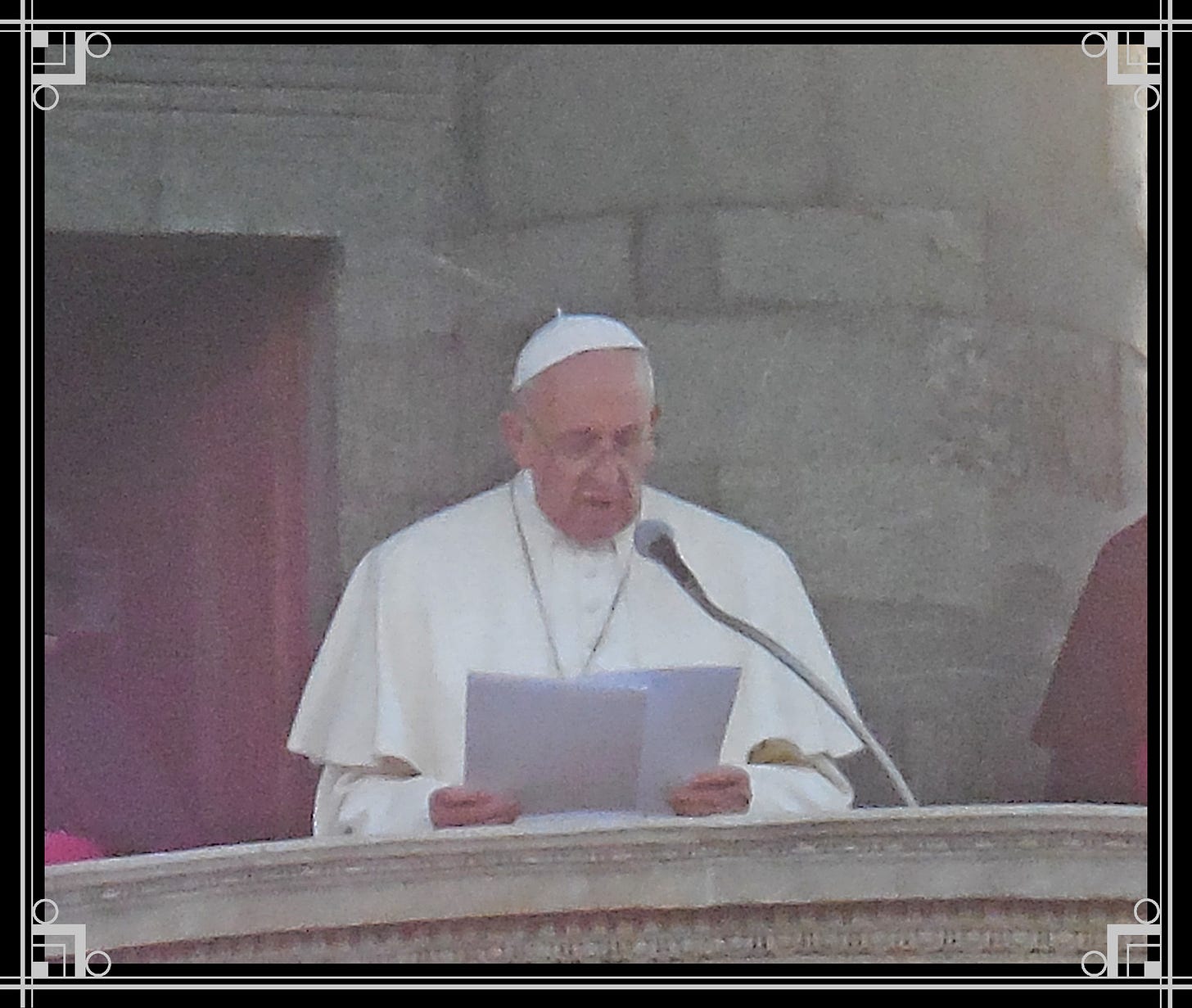
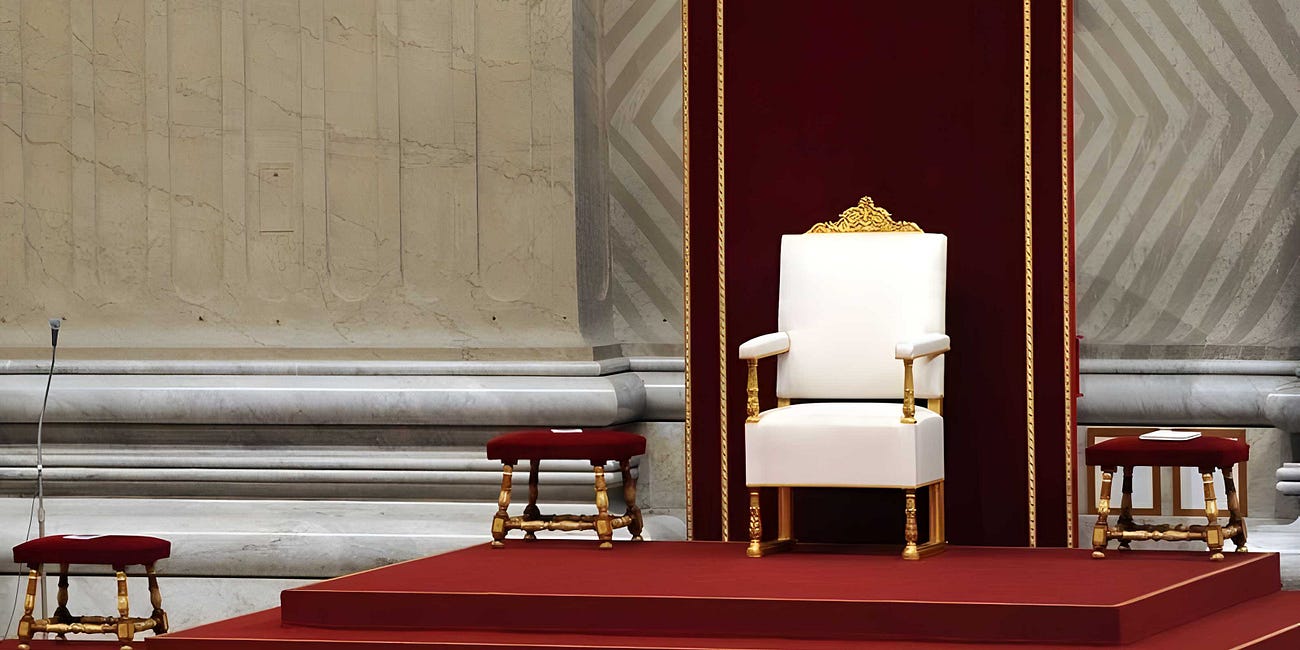
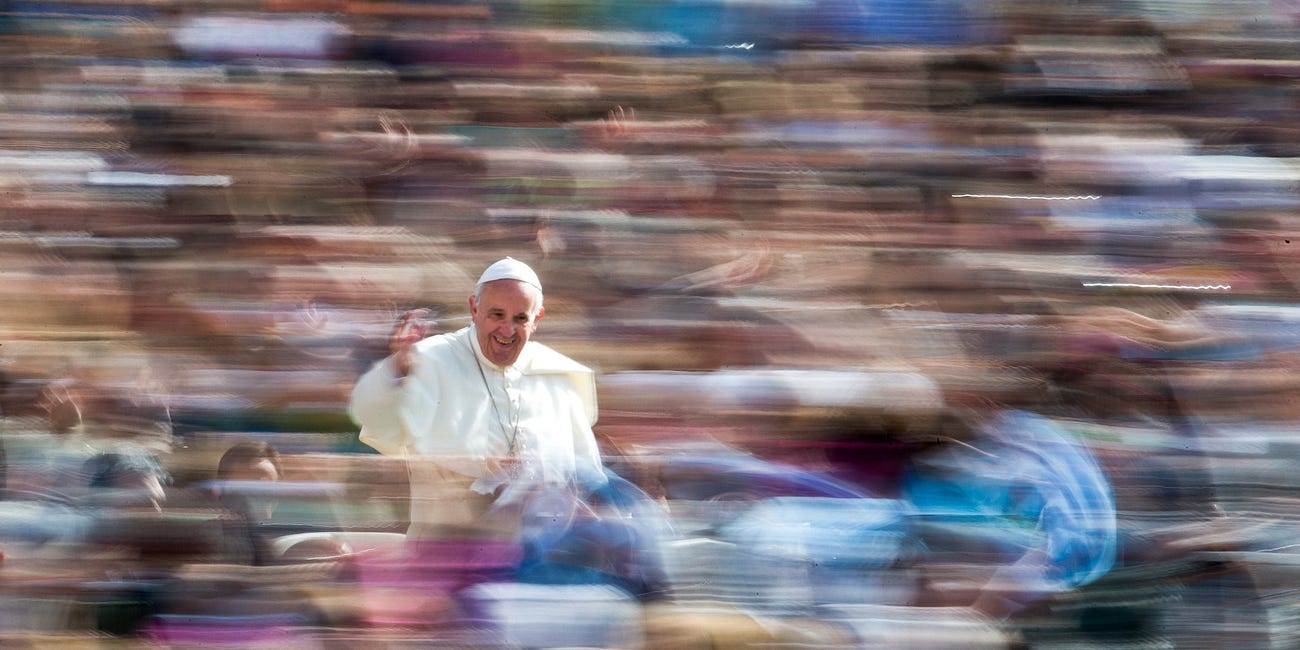
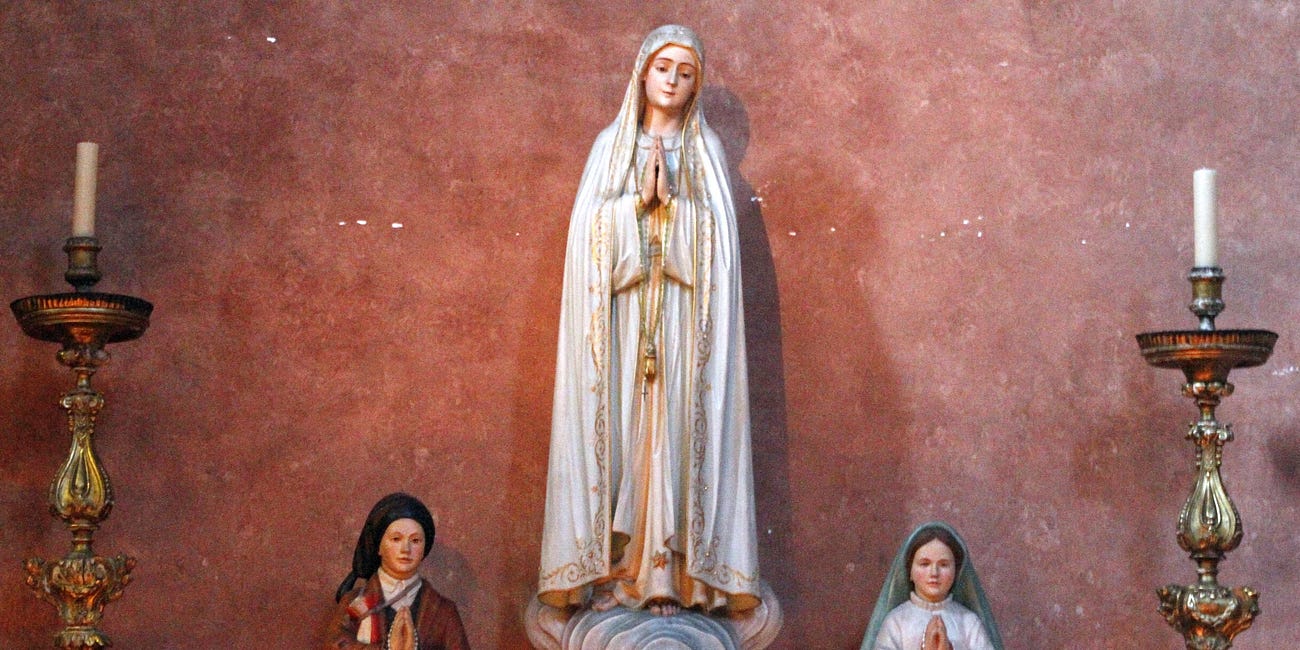
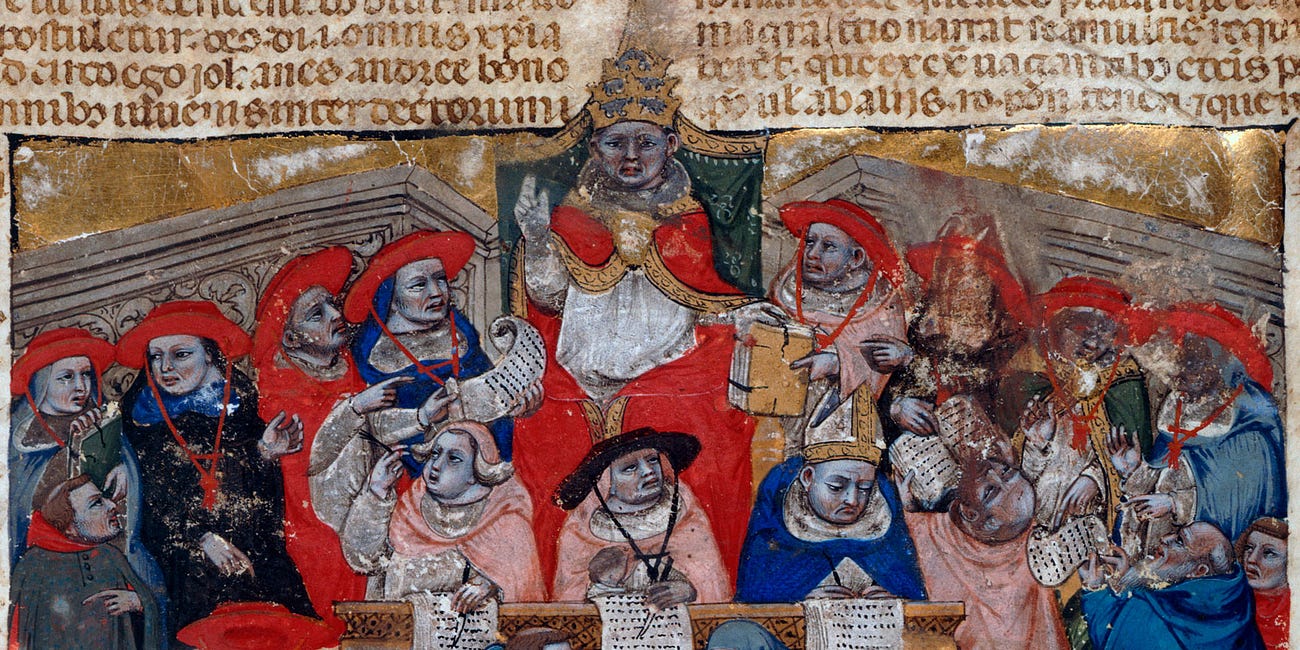
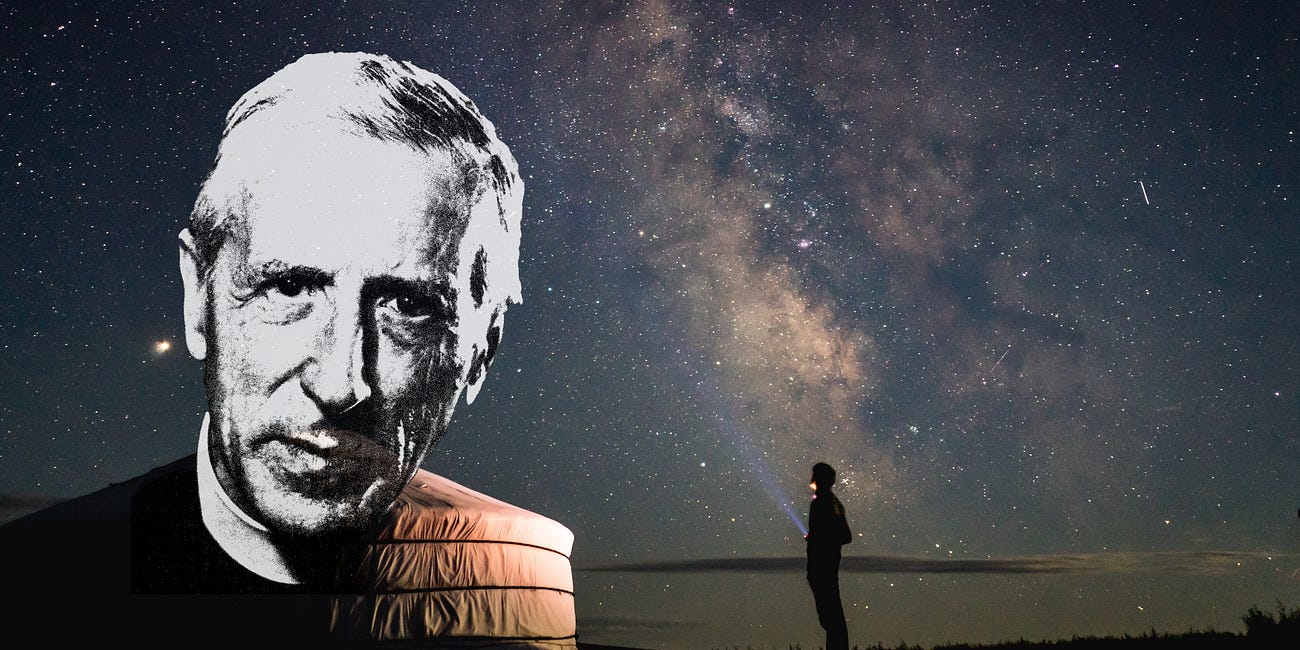
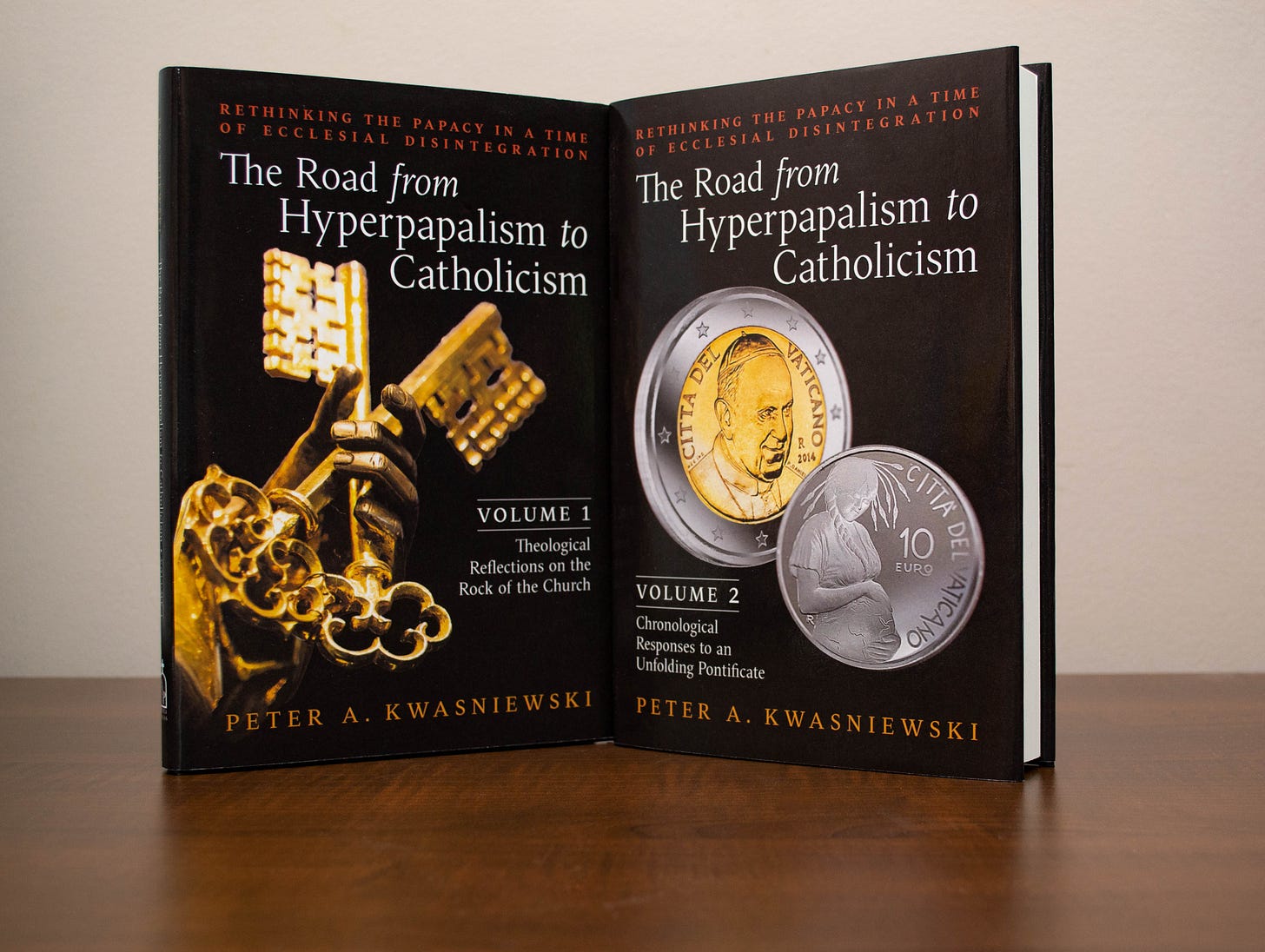
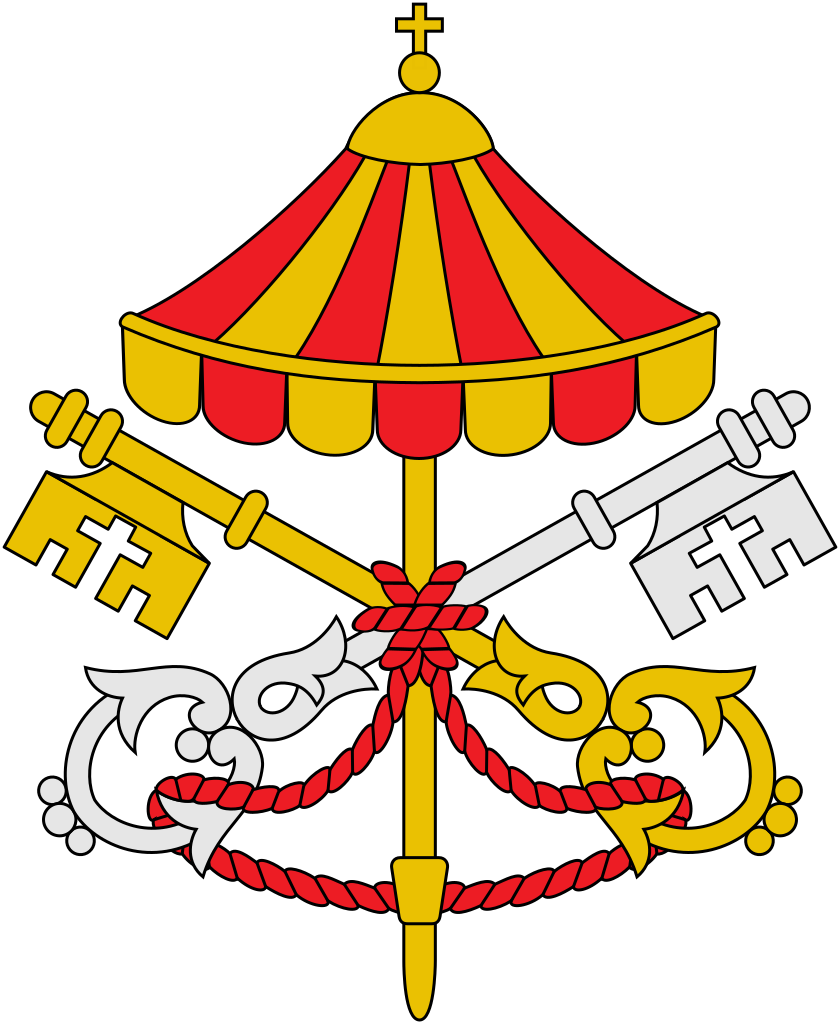
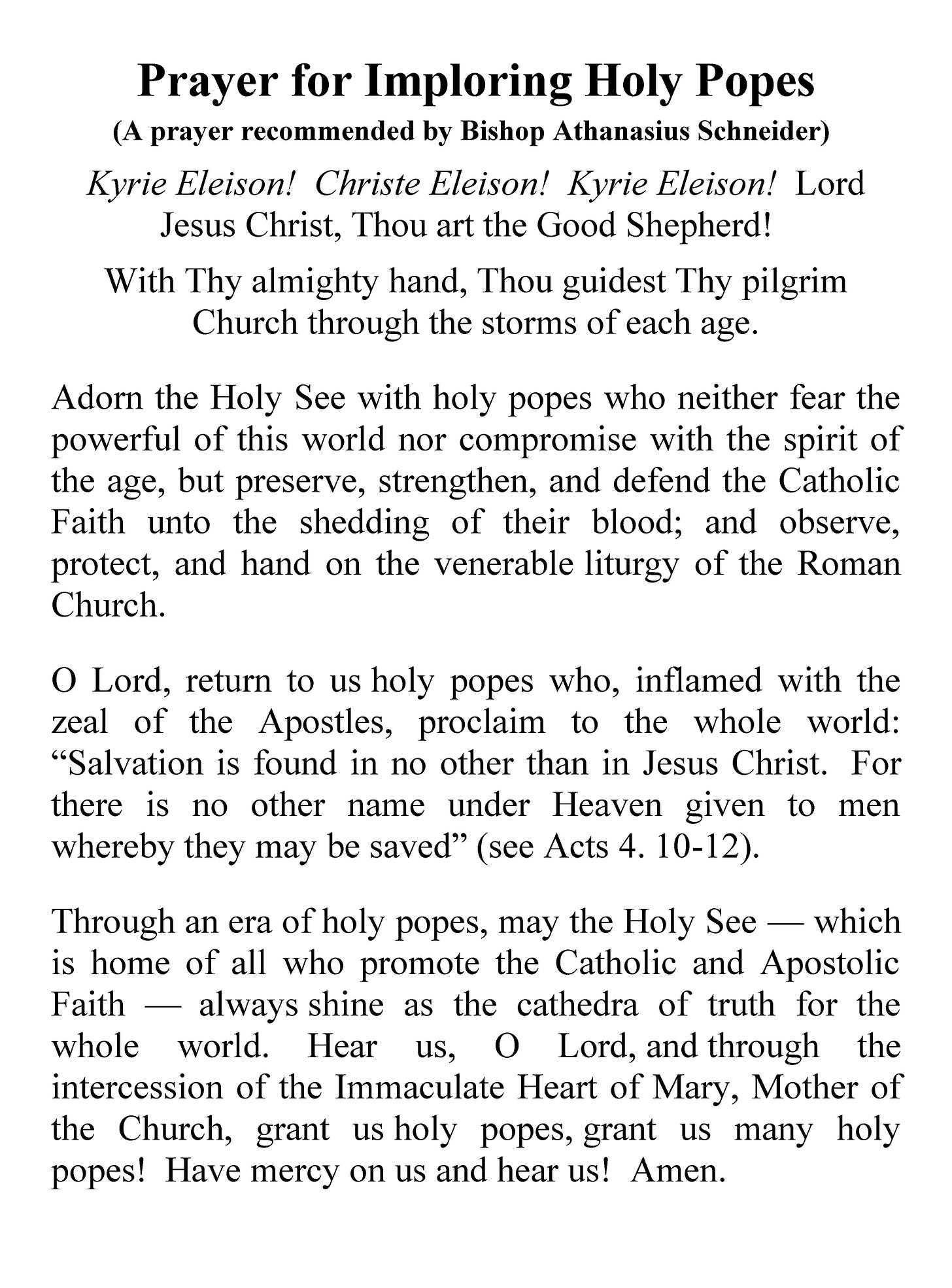
Without Pope Francis, I would not have developed such a love for the perennial Roman Rite because I saw what he was persecuting and I liked it. It is true that it wasn't a direct result of TC for my attendance was long before that, but TC and the responses only did the opposite of what Pope Francis intended. All he ever had to do was get rid of all the men responsible for the coverup of clerical abuse of children and crack down on the clown masses and "Pride" masses, and I can tell you that I wouldn't have had such an attachment to the perennial Roman Rite.
Thank you for putting in the work for this excellent compilation.
And I appreciate your point that pretending Francis was a good Pope is NOT charitable to the Church he harmed.